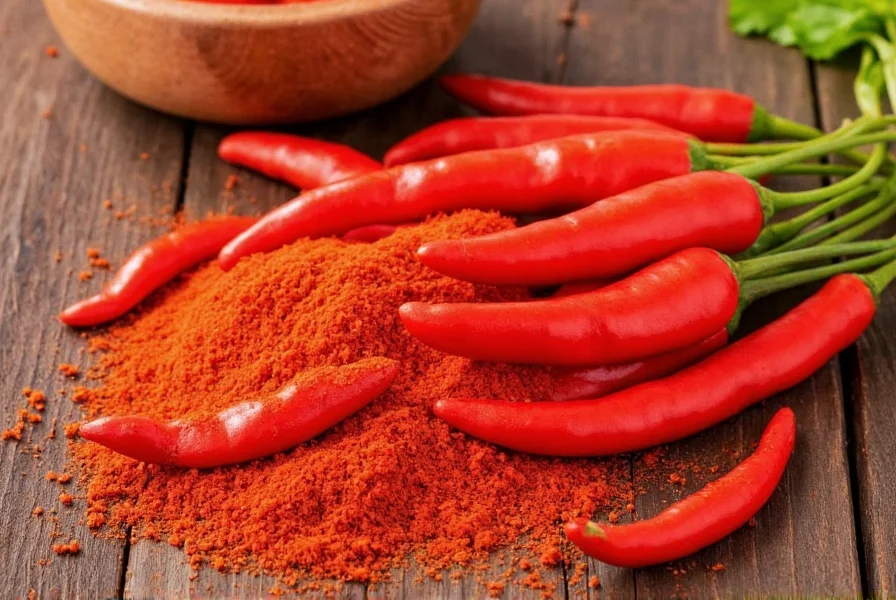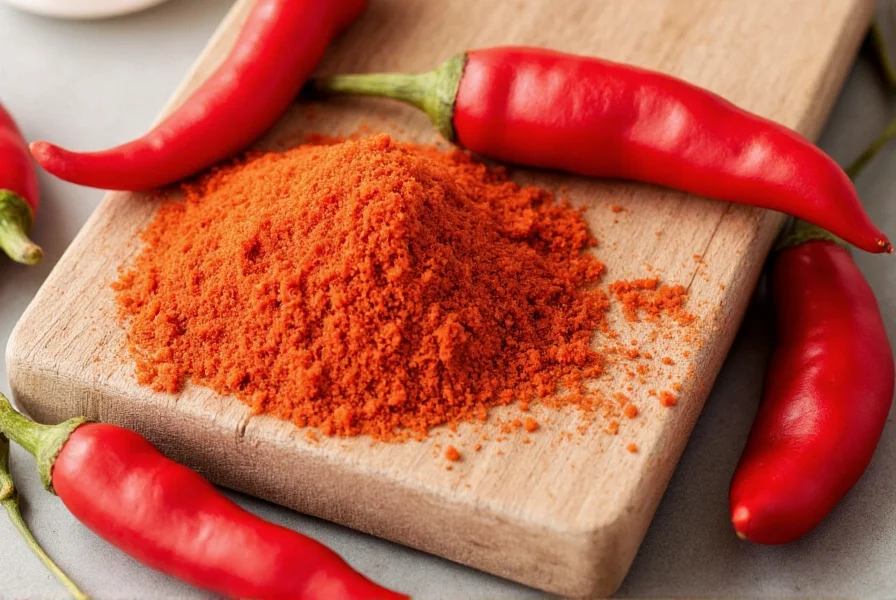Cayenne pepper (Capsicum annuum) supplements have gained popularity for their potential health benefits, primarily attributed to capsaicin—the compound responsible for the pepper's heat. Unlike culinary use, supplements deliver concentrated doses for specific therapeutic purposes. This evidence-based guide examines what scientific research actually supports about cayenne pepper supplementation.
Understanding Capsaicin: The Active Compound
Capsaicin interacts with TRPV1 receptors in the body, triggering physiological responses that explain many of cayenne pepper's effects. When consumed as a cayenne pepper dietary supplement, capsaicin absorption differs significantly from eating fresh peppers. Standardized extracts typically contain 0.25-1% capsaicin, with higher concentrations requiring enteric coating to prevent stomach irritation.

Evidence-Based Health Benefits
Research supports several potential benefits of cayenne pepper supplement benefits, though evidence strength varies by application:
| Benefit | Research Status | Effective Dosage |
|---|---|---|
| Metabolic support | Strong clinical evidence | 2-6mg capsaicin daily |
| Topical pain relief | Extensive clinical support | 0.025-0.075% cream |
| Cardiovascular support | Promising preliminary studies | 30-120mg extract daily |
| Weight management | Modest short-term effects | 2-10mg capsaicin daily |
Recommended Dosage Guidelines
Determining how much cayenne pepper should I take daily depends on your health goals and product formulation. Clinical studies showing metabolic benefits typically use 2-6mg of pure capsaicin, equivalent to 30-120mg of standardized cayenne extract (0.25-1% capsaicin). For digestive support, lower doses (30-60mg) taken before meals appear most effective.
Important considerations for cayenne pepper capsule dosage:
- Start with lowest effective dose (30mg) to assess tolerance
- Divide doses throughout the day to minimize gastrointestinal effects
- Choose enteric-coated capsules if experiencing stomach discomfort
- Do not exceed 120mg daily without medical supervision
Safety Profile and Potential Side Effects
While generally safe for most adults, capsaicin supplement side effects can include:
- Temporary burning sensation in mouth or throat
- Mild gastrointestinal discomfort (nausea, heartburn)
- Increased bowel frequency
- Rare cases of skin flushing or sweating
These effects typically diminish with continued use as the body adapts to capsaicin. However, certain populations should exercise caution with is cayenne pepper supplement safe considerations:
- Individuals taking blood pressure medications (may enhance effects)
- Those with gastrointestinal ulcers or inflammatory conditions
- People scheduled for surgery (may affect blood clotting)
- Pregnant or breastfeeding women (insufficient safety data)

Cayenne Supplements vs. Dietary Sources
Many wonder about cayenne pepper supplement vs fresh cayenne effectiveness. While fresh peppers provide vitamin C, antioxidants, and fiber, supplements deliver standardized capsaicin doses impossible to achieve through diet alone. A single cayenne pepper contains approximately 0.1-1mg capsaicin, whereas therapeutic supplements provide concentrated doses starting at 2mg.
However, food sources offer additional phytonutrients lost during supplement processing. For general health, incorporating cayenne pepper into your diet remains valuable. Supplements become relevant when targeting specific therapeutic effects requiring higher capsaicin concentrations.
Making an Informed Decision
When considering cayenne pepper supplementation, prioritize products with third-party testing verification. Look for standardized extracts specifying capsaicin content rather than vague "heat units" measurements. Reputable manufacturers provide certificates of analysis showing actual capsaicin concentration and absence of contaminants.
Remember that supplements complement—but don't replace—healthy lifestyle practices. The most significant benefits occur when cayenne pepper for weight loss evidence is combined with proper nutrition and exercise, not used as a standalone solution.
Frequently Asked Questions
How long does it take for cayenne pepper supplements to work?
Effects vary by application. Metabolic effects may be noticeable within 30-60 minutes of consumption, while cardiovascular benefits typically require consistent use for 4-8 weeks. Topical pain relief usually begins within 30 minutes of application.
Can I take cayenne pepper supplements with other medications?
Consult your healthcare provider before combining cayenne supplements with medications, particularly blood thinners, blood pressure medications, or diabetes drugs. Capsaicin may enhance the effects of these medications, potentially causing adverse reactions.
What's the difference between cayenne pepper and capsaicin supplements?
Cayenne pepper supplements contain the whole pepper extract with naturally occurring capsaicin (typically 0.25-1%), while capsaicin supplements provide isolated capsaicin in higher concentrations. Cayenne supplements offer additional compounds found in the pepper, while capsaicin supplements deliver precise, concentrated doses for specific therapeutic purposes.
Are there any long-term risks of taking cayenne pepper supplements?
Current research suggests cayenne pepper supplements are safe for long-term use at recommended doses. However, prolonged high-dose use (above 120mg daily) may potentially cause gastrointestinal irritation in sensitive individuals. No evidence indicates serious long-term risks when used appropriately.











 浙公网安备
33010002000092号
浙公网安备
33010002000092号 浙B2-20120091-4
浙B2-20120091-4